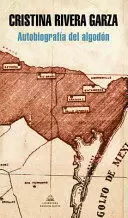
RIVERA GARZA, CRISTINA
u003cbu003eUno de los mejores libros en español del 2020 del u003ciu003eNew York Timesu003c/iu003eu003cbru003e u003cbru003e "u003ciu003eAutobiografía del algodónu003c/iu003e dota de un nuevo y extraordinario significante al territorio de la frontera norte de México, que aquí se erige majestuoso sobre el movimiento nómada y la ruta de los recuerdos." - Yásnaya Elena Aguilar.u003cbru003e u003cbru003eu003c/bu003eIndagar sobre el origen personal es abrir una puerta a muchas preguntas a silencios y respuestas impensadas que aveces terminan por ser un revés de la memoria. En u003ciu003eautobiografía del algodón,u003c/iu003e Cristina Rivera Garza sigue con curiosidad y asombro los pasos de aquellos hombres y mujeres que habitan su pasado familiar, obreros, campesinos que trabajaron la tierra que ahora conforma la frontera entre Tamaulipas y Texas, una región que alcanzó un alto nivel económico, social y cultural gracias al sistema de siembra del algodón.u003cbru003e u003cbru003e Es así que esta novela es, además de íntima, un reencuentro con el territorio. O un desencuentro, debido a la migración, deportación, expulsión y repatriación de aquellos campesinos algodoneros, que tras el fracaso del sistema, dejaron libre su espacio, antes símbolo de progreso, hoy ocupado por la llamada guerra contra el narco.u003cbru003e u003cbru003e u003cbu003eENGLISH DESCRIPTIONu003cbru003eu003c/bu003eu003cbru003e u003cbu003eOne of the best Spanish Books of 2020 by u003ciu003eThe New York Timesu003c/iu003eu003c/bu003eu003cbru003e u003cbru003e u003cbu003eu003ciu003eThe Autobiography of Cottonu003c/iu003e provides a new and extraordinary signifier to the territory of the northern border of Mexico, that here raises up majestically upon the nomadic movement and the route of memories." - Yásnaya Elena Aguilar.u003c/bu003eu003cbru003e u003cbru003e To look into personal origins is to open the door to many questions of silence and unthinkable answers that sometimes end up being a mishap of memory. In u003ciu003eThe Autobiography of Cottonu003c/iu003e, Cristina Rivera Garza follows, with curiosity and amazement, the steps of those men and women who dwell in her family's past, laborers, peasants who worked the land that now makes up the border between Tamaulipas and Texas, a region that achieved economic, social, and cultural prosperity thanks to the cultivation of cotton. Thus, this novel is, in addition to being intimate, a reunion with the land. Or, a disunion, due to the migration, deportation, expulsion, and repatriation of those cotton workers, who after the system failed, left their area unoccupied, before a symbol of progress, today taken over by the so-called war on drugs,